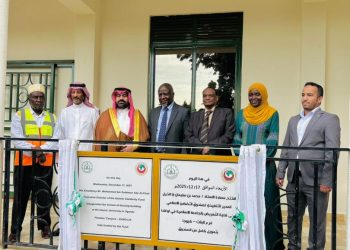Uganda’s digital revolution is gaining momentum, thanks to affordable asset financing for smart devices that is making 4G and 5G connectivity accessible to millions of citizens. By removing the cost barriers associated with owning 4G and 5G-enabled smartphones, asset financing institutions are empowering Ugandans to participate in the rapidly growing digital economy.
While mobile network operators have expanded 4G coverage to most urban and peri-urban areas and early investments in 5G networks are being rolled out, the high cost of compatible smartphones has remained a significant obstacle for many Ugandans. With a large portion of the population still relying on 2G and 3G devices, the potential of high-speed internet remains largely untapped.
“We have made significant strides in embracing technology, and I am confident Ugandans recognize the progress we have made compared to ten years ago. We have improved connectivity and extended internet access to many parts of the country, but challenges like the high cost of smart devices—smartphones, tablets, and laptops—continue to limit access for certain segments of society,” said Dr. Chris Baryomunsi, Minister for ICT and National Guidance.
Recognizing this challenge, a number of fintech startups, such as Watu Uganda, have introduced innovative asset financing solutions that enable customers to purchase 4G and 5G-enabled smartphones on credit. These financing models require a small initial deposit, with the balance paid in installments over several months, making advanced devices more accessible to a wider audience.
“Affordable financing is a game-changer for digital inclusion in Uganda. By offering flexible payment options, we are enabling more Ugandans to access the tools they need to connect, innovate, and thrive. We are helping the country to drive the 4G and 5G adoption agenda,” said Christian Kamukama, Head of Commercial at Watu Uganda.
Kamukama explained that affordable smartphones are transforming how Ugandans work, learn, and access vital services. For entrepreneurs and small businesses, he highlighted how high-speed connectivity allows them to conduct e-commerce, engage with customers online, and access global markets. Students are benefiting from online learning resources, while farmers are able to access real- time weather data and market prices through mobile applications.
He emphasized that these devices, available through low-interest financing, make quality technology accessible even to low-income earners.
Asset financing enables consumers to acquire smartphones that are compatible with 4G and 5G networks. As more Ugandans adopt these devices, Kamukama said mobile operators are encouraged to expand their 4G and 5G infrastructure to meet the rising demand for high-speed connectivity.
He noted that beyond urban centers, asset financing programs are making their way into rural and underserved communities, where smartphone penetration and digital literacy have traditionally been low. This growing access to mobile technology is essential for fostering digital inclusion across the country.
Despite the progress, Allan Mukalazi, an economist said challenges such as limited smartphone awareness, concerns about debt, and inconsistent electricity or network coverage remain barriers for some potential users, particularly in rural areas.
“These factors make it difficult for residents in some regions to fully utilize their devices, limiting the potential of digital connectivity,” he said.
He said nevertheless, affordable asset financing for smart devices is laying the foundation for a more digitally inclusive Uganda. With greater access to high-speed internet, Mukalazi said Ugandans are better equipped to seize online opportunities in areas such as education, business, and entertainment.

































